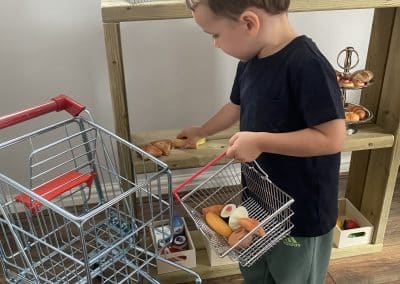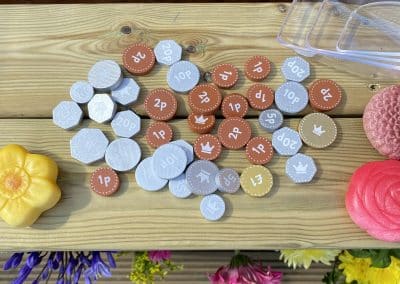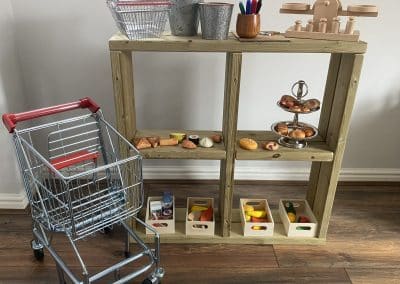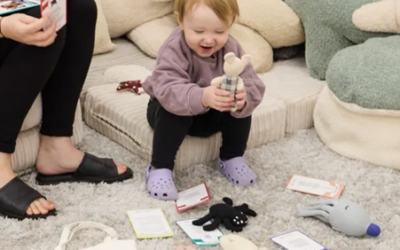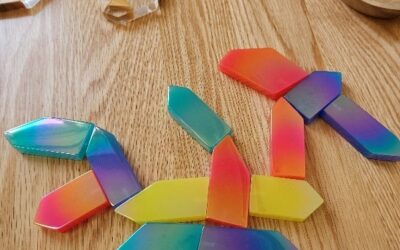Learning Mathematics through Pretend Play
Playing shops is part of children’s every day play because shopping is a way of life. They have first-hand experiences of visiting shops, choosing items, paying and taking their goods home.
Introducing a traditional shop of food is a great way to engage learners with mathematics as it is something they are familiar with. Key concepts can be explicitly taught through the resources. If you do not have a play shop, shelving at children’s height (such as the ones in the images) work just as well.
Role play shops are the perfect way to teach children about the mathematical concept of money. As they pretend to buy their items, children learn that they exchange their money for the items they are buying. Using coins, the children can figure out ‘how many’ and put into practice counting for a purpose.
As adults, we can facilitate their learning by modelling paying and introduce mathematical language they may not be familiar with yet such as ‘change, how many, total’ etc. Adding price labels to the shop encourages children to recognize numerals and helps them to naturally count the amounts of coins that link up with the price, learning 1:1 correspondence. Using coins in mathematics play helps them to explore early addition and subtraction sums. Including weighing scales in the shop will enable young learners to explore themes such as heavier/lighter and balance.
Shop themes to develop in role play:
- Food shop
- Flower/gardening shop
- Toy shop
- Coffee shop
- Clothes/uniform shop
- Farm shop
- Shoe shop
Mathematics vocabulary linked to shops:
- Pay
- Change
- Total
- Weigh
- Heavy
- Light
- Amount
This blog was kindly written by our brand ambassador and EYFS teacher Katie Taylor. Find her on Instagram @earlyyearsoutdoor
Related blogs
Top Tips for Play with Rhyme Time
Author: Alice Sharp Alice is nationally and internationally recognised as using a dynamic and innovative approach to children. She uses an experiential approach in her role as early childhood influencer, keynote speaker, mum and writer. She is waiting to uplift...
Top Tips for Play with Gems, Jewels and Sparkles!
Author: Alice Sharp Alice is nationally and internationally recognised as using a dynamic and innovative approach to children. She uses an experiential approach in her role as early childhood influencer, keynote speaker, mum and writer. She is waiting to uplift...
Ollie’s top 10 tips for setting up a new nursery
Setting up a new nursery is an exciting opportunity to create a space where young children can thrive, explore, and grow. Whether you're opening a brand-new setting or refreshing an existing one, thoughtful planning is key. Our very own Ollie the Owl shares his top 10...
